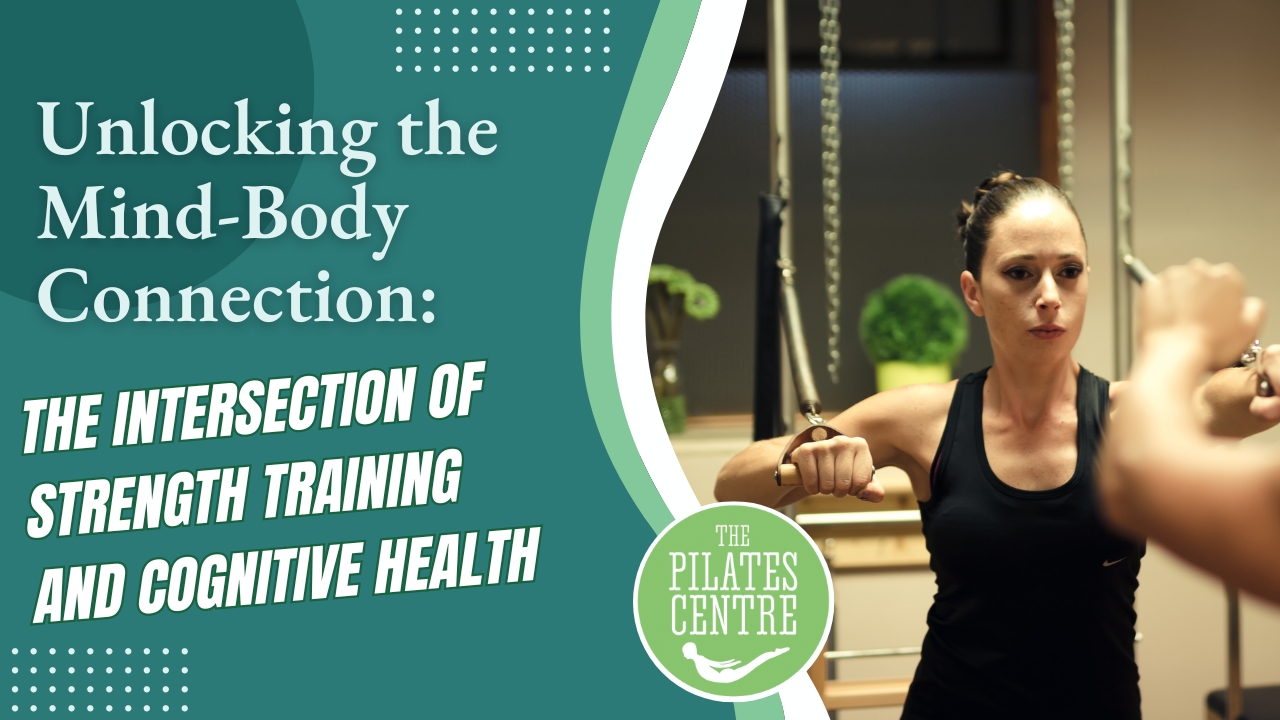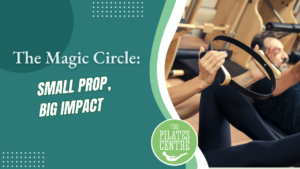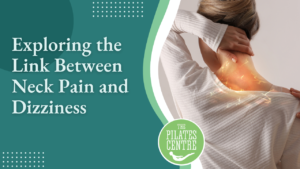Introduction
Hello, dear friends of the Pilates Centre! Today, I’m thrilled to share some fascinating insights that beautifully blend the worlds of physical fitness and mental sharpness. Ever wonder how pulling those springs at the studio and stretching on the mat could do more than just tone your muscles? Let’s dive into a topic that’s close to my heart – the amazing link between strength training and cognitive health.
Linking Skeletal Muscle and Cognition: A Personal Journey
It is a fact that once you hit 30 your body starts losing muscle mass if you don’t do any form of strength training. Sacropenia, as it is scientifically called, will effect all of us if we are not careful, but of course if you go to your physician they won’t be willing to share helpful information about how to manage it as they were not taught this in medical school. A brilliant review by Oudbier et al. has opened my eyes to how our muscles and brains are like best buddies, chatting and supporting each other. This research goes deep, exploring how our muscles and brain communicate, something I wish I knew during my own struggles!
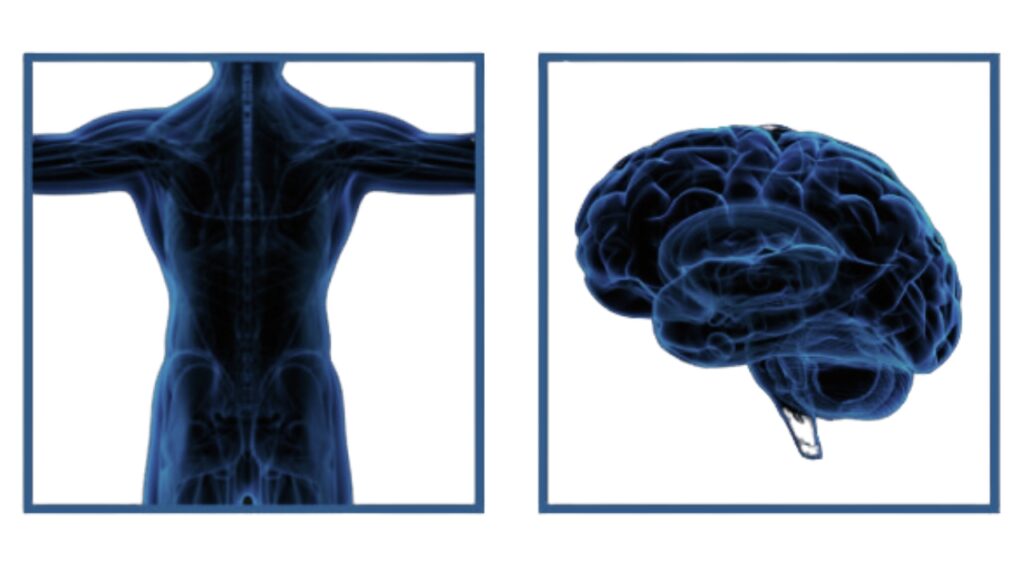
The Science Behind the Muscle-Mind Chat
Medical doctors that have ventured onto the scientific field have conducted further research confirming the cognitive benefit following strength training. Now, we’re gonna be a little bit more scientific for those nerdy ones out there (but not for too long, I promise!). The review talks about four big words – systemic inflammation, insulin resistance, abnormal protein accumulation, and mitochondrial dysfunction. But here’s the gist: when we lose muscle, it’s not just about getting weaker physically. It can actually lead to a foggy brain! And you know what’s fascinating? Our muscles release these special messengers called myokines, which jump right into our brains, helping to keep it sharp and sprightly.
Myokine: The Unsung Heroes
I had an “Aha!” moment learning about myokines. These tiny warriors, released during our Pilates sessions, travel to our brains and work their magic. They’re like secret agents keeping inflammation at bay and helping new brain cells grow. It’s a bit like watering a plant – the right nutrients (or in this case, myokines) keep it thriving!
Connecting the Dots: It’s All About Balance
The review by Oudbier et al. is like a detective novel, uncovering clues that link our muscle health to our brain health. It suggests that keeping our muscles strong might just be the secret ingredient to a sharp, clear mind. As someone who’s felt the mental boost from a good workout, this research speaks volumes to me.
Pilates equipment exercises
With that in mind, here are some Pilates exercises on the Reformer, the Chair, and the Cadillac that align well with the themes of strength training and cognitive health discussed in this post. These exercises not only help in building muscle mass and strength but also encourage mindfulness, concentration, and coordination, which are beneficial for cognitive health.
On the Reformer:
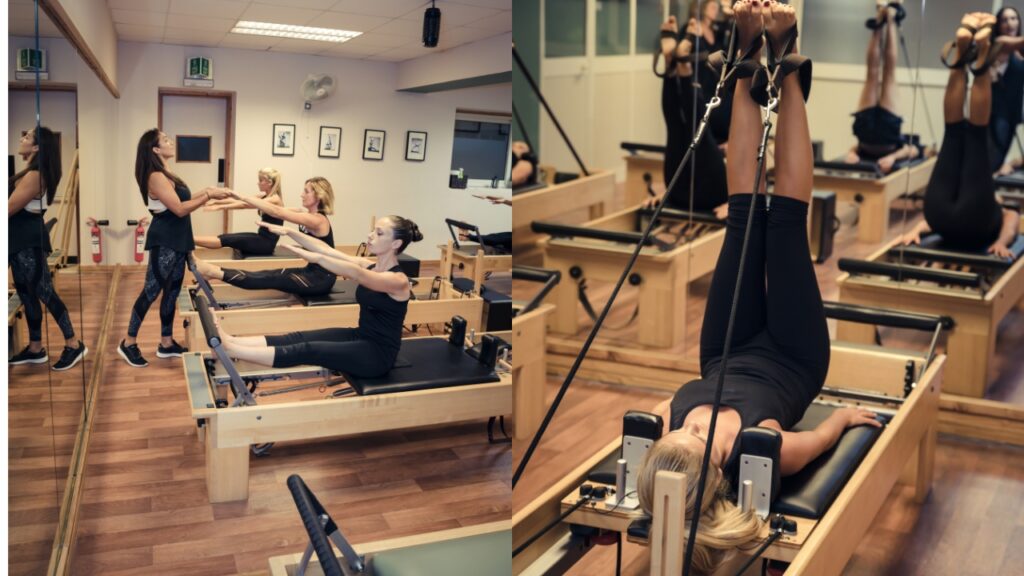
- Footwork Series: This series works on leg strength and flexibility. It’s a great way to start warming up the body, engaging the mind with the rhythm and precision of the movements.
- Leg Circles: This exercise improves hip joint mobility and strengthens the leg muscles, while the coordination required helps to engage the brain.
- The Hundred: A classic Pilates exercise, it strengthens the core and improves respiratory capacity, requiring concentration and breath control.
- Rowing Series: These exercises work the upper body and core, requiring mental focus to coordinate the movement with breathing.
- Mermaid: This exercise stretches the side of the body and requires focus and control, promoting a mind-body connection.
On the Chair:
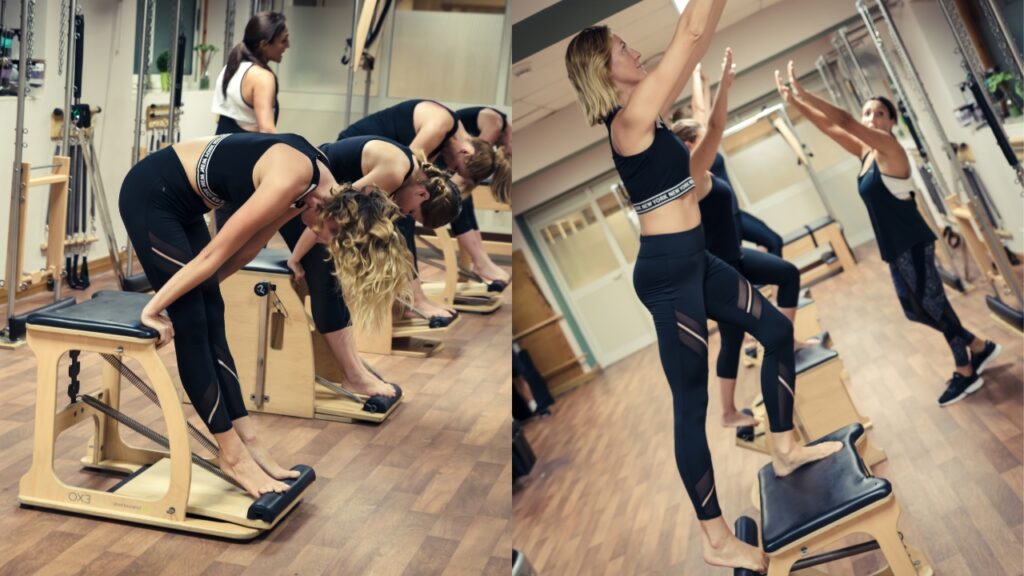
- Going Up Front: This exercise strengthens the legs and glutes, requiring focus and control to maintain balance and proper form.
- The Swan: This exercise strengthens the back muscles and improves spine flexibility, engaging the mind with the control of movement.
- Going up side: This move challenges balance and leg strength, requiring mental focus to maintain stability.
- Push Down: A great exercise for arm and shoulder strength, it also enhances core stability and requires mental focus to perform correctly.
On the Cadillac:
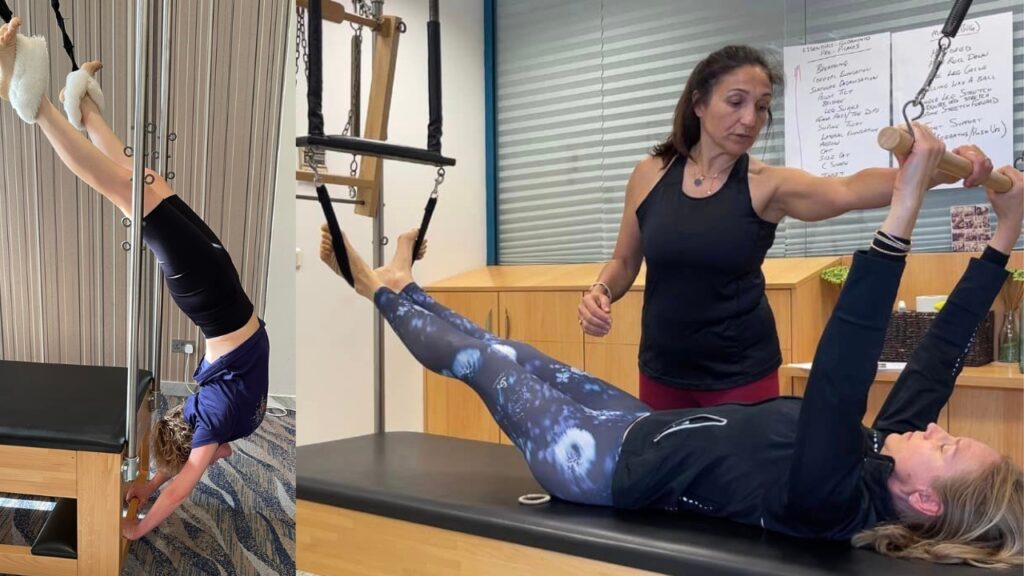
- Arm Springs: These exercises work on upper body strength and flexibility, requiring concentration and coordination.
- Leg Springs: They target the lower body, improving strength and flexibility. The controlled movements help in focusing the mind.
- Roll Back: This exercise strengthens the core and increases spinal flexibility, requiring mental focus for smooth execution.
- Breathing Exercises: Using the trapeze for breathing exercises helps in improving respiratory function, a vital part of cognitive health, while also encouraging mindfulness.
- Teaser Progressions: These exercises challenge the core and improve balance, requiring mental and physical coordination.
Incorporating these exercises into a Pilates routine can help in achieving a holistic approach to health, targeting both physical strength and cognitive well-being. Remember, it’s not just about the movements, but also about the awareness and focus you bring to each exercise, fostering that crucial mind-body connection.
Conclusion: A Lifelong Dance of Strength and Mindfulness
As we wrap up this journey through the intertwining paths of strength training through studio Pilates and cognitive health, I’m reminded of the incredible power of exercise. It’s not just about looking good – it’s about feeling vibrant, mentally and physically. While scientists like Oudbier and his team are still piecing together this complex puzzle, one thing is crystal clear: taking care of our bodies is taking care of our minds.
So, dear friends, let’s continue to cherish every Hundred, every Teaser, and every mindful moment at the Pilates studio and on our mats. Remember, our physical and mental well-being are partners in this beautiful dance of life. Stay strong, stay sharp, and keep moving forward with love and light in your hearts!
To learn more about Pilates Centre or if you’re interested in our sessions, you can email us at info@pilatescentre.es. If you have any questions, feel free to reach out to John and our team by Calling or WhatsApp on +34 610 30 60 05. We will be more than happy to assist you.

John McCallum
is an esteemed, Fully Certified Comprehensive Classical Pilates Teacher and takes immense pride as the proprietor of the distinguished Pilates Centre located in Jalon, Spain. His remarkable journey in the realm of Pilates commenced back in 2006, a pivotal juncture when he confronted the diagnosis of three slipped discs in his lower back. Pilates emerged as a beacon of profound hope and rejuvenation in his life. Instead of succumbing to the prospect of surgical intervention, Pilates gracefully assumed the role of his lifeline.
This transformative experience impelled him to make a resolute decision that would reshape his life’s trajectory. Following his journey to become a Pilates Teacher, he passionately extended the benefits he had personally garnered to those in need. This also took him to travel to other countries to continue to learn and have a fuller understanding of the method.
Fueled by an unwavering passion for Pilates, he has forged a dynamic collaboration with a reputable research institution. This strategic alliance enables him to deliver precise and illuminating insights, fostering support and empowerment for individuals interested in the power of this method. His literary contributions have garnered distinction within an array of esteemed global publications.

